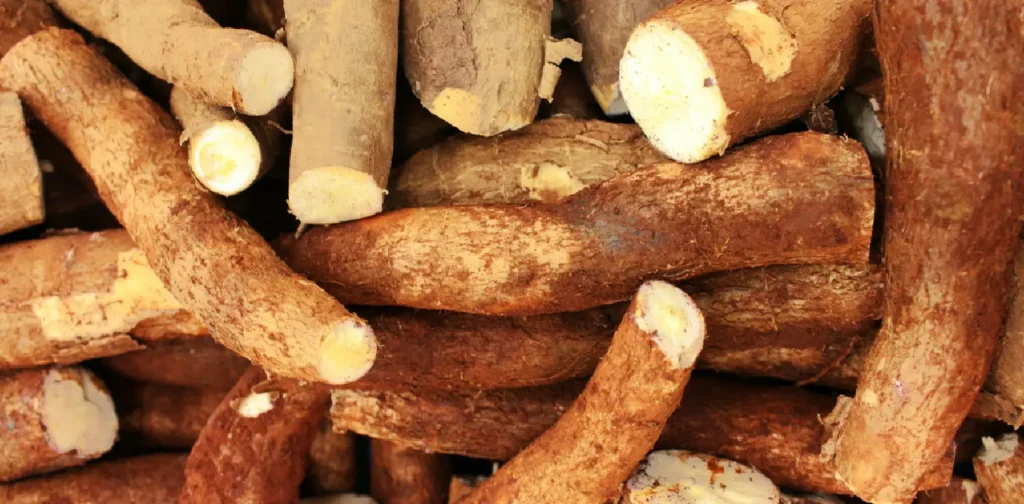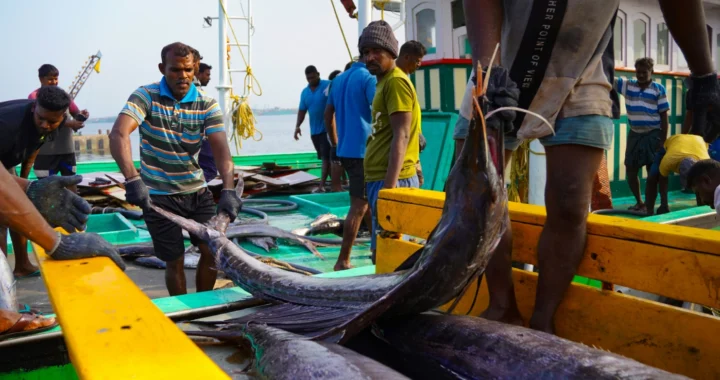Improving Cassava Productivity and Quality in Tanzania

Photo: Daniel Dan on Unsplash.
The agriculture sector highly depends on the climate and global economy to thrive. As the weather becomes hard to predict and the economy fluctuates, keeping the sector and people in it afloat gets tougher. In Tanzania, efforts are being implemented to improve cassava production and quality as one of the country’s top staple foods.
Cassava in Tanzania
Cassava is Tanzania’s third most important staple food crop after maize and rice. The production involves 1.9 million stakeholders across the value chain, with smallholder farmers making up most of the agricultural workforce. On average, the annual yield can reach between 3.5 and 8.5 tons per hectare.
Despite its commercial potential, the crop’s productivity is hindered by many factors, such as lack of technological development, pests and diseases, unpredictable rain due to climate change, and lack of investment and market information among stakeholders. The market is still largely untapped and uncoordinated, which prevents efforts to strengthen food security and improve income generation.
Initiatives and Frameworks
Cassava’s potential for improving the overall livelihood in Tanzania has prompted support from governments and organizations through various initiatives and frameworks.
For instance, Tanzania’s Ministry of Agriculture published the National Cassava Development Strategy 2020 – 2030, detailing strategic interventions to increase cassava production and quality. The strategy aligns with the country’s agriculture policy and development programs to transform the sector. With this strategy, the government plans to double crop productivity from 8 tons per hectare to 16 tons per hectare and intensify production with minimal land expansion, among other goals.
Another example is the research and development of 26 new high-yielding cassava seed varieties by the Tanzania Agricultural Research Institute (TARI). Nine of them have been highly utilized by farmers due to their ability to produce cassava with good taste, high quantity, and resistance to diseases. Furthermore, workshops and forums led by the government are also held to assess growth and facilitate conversations between stakeholders.
Supporting Strong and Sustainable Agriculture
Agriculture is an essential pillar of a nation’s economy and welfare. It generates income for farmers and other key players in the sector and acts as the backbone of a country’s food security.
However, the sector is also highly vulnerable to global economic and climate changes. This underscores the urgent need to prioritize efforts and mechanisms to improve agriculture’s resilience against shocks and crises. In this case, collaboration between governments, businesses, and civil society is essential to create pathways and innovation for a strong and sustainable agriculture sector.
Editor: Nazalea Kusuma

Join Green Network Asia Membership
Amidst today’s increasingly complex global challenges, equipping yourself, team, and communities with interdisciplinary and cross-sectoral insights on sustainability-related issues and sustainable development is no longer optional — it is a strategic necessity to stay ahead and stay relevant.

Kresentia Madina
Madina is the Assistant Manager of Stakeholder Engagement at Green Network Asia. She holds a bachelor’s degree in English Studies from Universitas Indonesia. As part of the GNA In-House Team, she supports the organization's multi-stakeholder engagement across international organizations, governments, businesses, civil society, and grassroots communities through digital publications, events, capacity building, and research.


 Global Reform on Fisheries Subsidies Signals a Hopeful Shift Toward Ocean Sustainability
Global Reform on Fisheries Subsidies Signals a Hopeful Shift Toward Ocean Sustainability  A Major Cause of Changing Rainfall Patterns
A Major Cause of Changing Rainfall Patterns  Strengthening Disaster Risk Governance at Local Levels
Strengthening Disaster Risk Governance at Local Levels  Recognizing the Role of Local Communities in Biodiversity Conservation
Recognizing the Role of Local Communities in Biodiversity Conservation  Preserving a People’s Identity by Protecting Art and Cultural Heritage amid Conflicts
Preserving a People’s Identity by Protecting Art and Cultural Heritage amid Conflicts  Revealing Progress and Gaps of Healthcare in Southeast Asia
Revealing Progress and Gaps of Healthcare in Southeast Asia